Science Advisory Board

Ari Patrinos
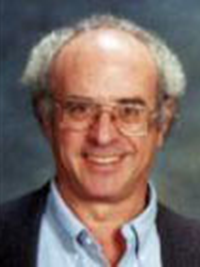
Henry Abarbanel
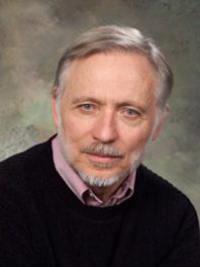
Elbert Branscomb
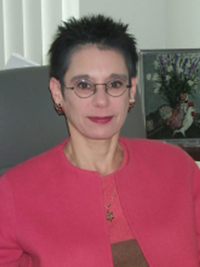
Michelle Broido
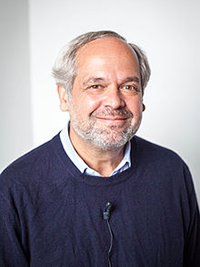
Juan Enriquez
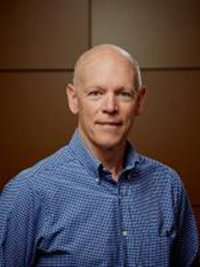
Jack Fellows
Ari Patrinos
Chair of the Science Advisory Board at Novim
Ari was previously Deputy Director, Research, NYU Center For Urban Science & Progress, Brooklyn, NY. Prior to that, he was President of Synthetic Genomics Inc., and Director of the Office of Biological and Environmental Research in the Department of Energy’s Office of Science, where he oversaw human and microbial genome research, structural biology, nuclear medicine and health effects and global climate change.
He is well known for his leading roles in the development of the U.S. Global Change Research Program and the U.S. Human Genome Project. In addition, Ari helped create the Joint Genome Institute and developed and launched the Genomes to Life Program, a research program dedicated to developing technologies to use microbes for innovative solutions to energy and environmental challenges.
He received his undergraduate degree from the National Technical University of Athens, and Ph.D from Northwestern University.
Professional Associations – recipient of 3 Presidential Rank Awards and 2 Secretary of Energy Gold Awards. Ari is a fellow of the American Association for the Advancement of Science and the American Meteorological Society and a member of the American Society of Mechanical Engineers and the American Geophysical Union.
Henry Abarbanel
Research Director Science and Security at IGCC
Henry received his B.S. in physics from Caltech and his Ph.D. in physics from Princeton University. He has served on the faculties at Princeton, Stanford, Northwestern, the University of Chicago, UC Berkeley, UC Santa Cruz and, since 1982, at UC San Diego. He presently has appointments as professor of physics at UC San Diego and research physicist at the Marine Physical Laboratory, Scripps Institution of Oceanography.
His research interests have ranged from elementary particle physics to the nonlinear dynamics of biological and physical systems. In that regard he was the founding director of UC San Diego’s Institute for Nonlinear Science and served from 1986 through 2007. In 2000–01 he served as a member of the University of California’s Academic Council, the governing body of UC’s faculty senate.
Since 1974, Henry has been a member of JASON, a consulting group to the U.S. Government on technical matters. In 1992 he became a member of the City Council of Del Mar, California, serving as mayor in 1995–96. In that role he has served on numerous regional bodies concerned with energy, wastewater, infrastructure, and quality of life in the San Diego region.
Professional Associations – member of the San Diego Regional Water Quality Control Board, by appointment of Governor Jerry Brown.
Elbert Branscomb
Department of Physics, University of Illinois Biocomplexity research theme member, Institute for Genomic Biology
Elbert received his B.A. in physics from Reed College (1957) and his Ph.D. in Theoretical Physics from Syracuse University (1964). In 1964 he joined Lawrence Livermore National Laboratory (LLNL) as a theoretical physicist but transitioned to biology shortly thereafter, becoming a senior biomedical scientist in 1969. His primary research focus was on inaccuracy in DNA replication and transcription: its biological consequences, the mechanisms by which it is controlled, and how heritable mutation rates might be measured in human populations. In 1986, when the Department of Energy (DOE) initiated a program to map and sequence the human genome, he assumed responsibility for the computational and mathematical component of LLNL’s human genome program. In 1996 when the DOE founded the Joint Genome Institute, Branscomb was named its initial director, serving in that capacity until the completion of the first publicly funded ‘draft’ sequence of the human genome in 2000. From 2000 to 2004, he held the position of Chief Scientist, US DOE Genome Program, in which capacity he assisted the DOE’s Office of Biological and Environmental Research in the furtherance of its genomics-related research programs. In recognition of his scientific contribution to LLNL and the DOE he was awarded the Edward Teller Fellowship in 2001. In 2004 he was named an LLNL Associate Director with responsibility for leading its Biomedical Directorate, a position he held until shortly before retiring from LLNL in 2007. Since moving with his wife Lisa Stubbs to the University of Illinois in 2008, he has held the position of Affiliate Faculty, jointly attached to the Department of Physics and the Biocomplexity Theme at the IGB.
Professional Associations – Elbert serves on the Scientific Advisory Board for UCLA’s Structural Biology Program; the Scientific Advisory Board for the Joint Center for Structural Genomics, La Jolla, and has been an invited reviewer for more than 20 special National Institute of Health (NIH) review panels. He is also a member of the Editorial Board for the Journal of Computational Biology and was named an Edward Teller Fellow by LLNL in 2001. He is also the author of more than 39 publications.
Michelle Broido
Associate Vice Chancellor for Biomedical Research, Office of Research (Retired), Health Sciences, University of Pittsburgh
Michelle has served in a number of positions that, cumulatively, have given her experience in conducting independent, multi-disciplinary research, oversight of training and research programs, prioritizing federal research expenditures, evaluation of competitive research and training programs, development of new award programs, and development of new programs focused on helping investigators achieve independence and research success. First, as a faculty member, she conducted independent research in structural biology. As a program officer at NIGMS, she had responsibility for a very large portfolio of research grants in structural biology and molecular biophysics, responsibility for the Molecular Biophysics Training Program (T32), and responsibility for a fellowship program (F31). As a division director in the Office of Biological and Environmental Research at the Department of Energy (DOE), she had responsibility for a $180 million budget that supported a broad spectrum of research awards in environmental sciences that epitomized translational research and that required the creation of new, innovative programs in response to emerging scientific needs. As the Associate Vice Chancellor for Biomedical Research at the University of Pittsburgh, she has developed and managed pilot programs, developed/expanded new core facilities, been involved in the creation of new research programs, and had broad responsibility for developing infrastructure that supports biomedical research at the University. At the University, she also served in a leadership position for our Clinical and Translational Science Award from 2006 – 2015.
Although she relished being an active investigator, she found that she took greater enjoyment in helping other scientists be successful than she did in her own individual scientific accomplishments. This is why she left a tenured position to enter government service. She was first exposed to translational research as division director at DOE, where the fundamental science studies that she supported all had clear and explicit implications for environmental restoration (including climate change). She also developed programs to bridge the valley of death between fundamental and applied research, equivalent to the valley of death between laboratory-based and clinical research. Being able to apply the lessons learned during that stage of her career to the biomedical research enterprise at the University of Pittsburgh was rewarding.
Juan Enriquez
Managing Director, Excel Venture Management, bestselling author, Co-Founder, Synthetic Genomics and multiple start ups
An active investor in early stage private companies in the life sciences and big data sectors, Juan is one of the world’s leading authorities on the uses and benefits of genomic code. He is the co-author of Evolving Ourselves: How Unnatural Selection and Nonrandom Mutation are Shaping Life on Earth (Penguin; March 2015) which describes a world where humans increasingly shape their environment, themselves, and other species. He is also the author of the global bestseller As The Future Catches You and of The Untied States of America, and co-author of Homo Evolutis. Juan writes, speaks, and teaches about the profound changes that genomics and other life sciences will cause in business, technology, politics and society. He is one of the TED all-stars. He and Bill Gates were the first outside guest curators for TED.
Professional Associations – founding director of the Harvard Business School Life Sciences Project and is on the Harvard Medical School Advisory Council. He has published papers and articles in a wide variety of forums including The Harvard Business Review, Foreign Policy, Science, Nature, and the New York Times.
Jack Fellows
Director Emeritus, Climate Change Science Institute, Oak Ridge National Laboratory
Jack began his career as a research faculty member at the University of Maryland, where he conducted research in the use of satellite data in hydrologic models. In 1984, he was selected as the American Geophysical Union’s congressional science fellow and spent a year working on science policy and legislation in the U.S. Congress. After his fellowship, he joined the White House’s Office of Management and Budget, where he oversaw the budget and policy issues related to NASA, NSF, Federal-wide R&D programs, and helped initiate the U.S. Global Change Research Program. From 1997 to 2013, he was the Vice President of the University Corporation for Atmospheric Research and oversaw this 110 universities research consortium focused on weather and climate policy and research. After UCAR, he was the Director of the Climate Change Science Institute (CCSI) at Oak Ridge National Laboratory from 2013 to 2017. He is currently the CCSI Director Emeritus, a Joint Faculty Professor at the University of Tennessee, and working on independent research projects.
Professional Associations – In 2014 Jack received a Lifetime Achievement Award from The National Council for Science and the Environment for his part in co-founding the U.S. Global Change Research Program, or USGCRP.

Ari Patrinos
Chief Scientist
Ari Patrinos
Ari Patrinos is the Chair of the Science Advisory Board at Novim.
Ari was previously Deputy Director, Research, NYU Center For Urban Science & Progress, Brooklyn, NY. Prior to that, he was President of Synthetic Genomics Inc., and Director of the Office of Biological and Environmental Research in the Department of Energy’s Office of Science, where he oversaw human and microbial genome research, structural biology, nuclear medicine and health effects and global climate change.
He is well known for his leading roles in the development of the U.S. Global Change Research Program and the U.S. Human Genome Project. In addition, Ari helped create the Joint Genome Institute and developed and launched the Genomes to Life Program, a research program dedicated to developing technologies to use microbes for innovative solutions to energy and environmental challenges.
He received his undergraduate degree from the National Technical University of Athens, and Ph.D from Northwestern University.
Professional Associations – recipient of 3 Presidential Rank Awards and 2 Secretary of Energy Gold Awards. Ari is a fellow of the American Association for the Advancement of Science and the American Meteorological Society and a member of the American Society of Mechanical Engineers and the American Geophysical Union.
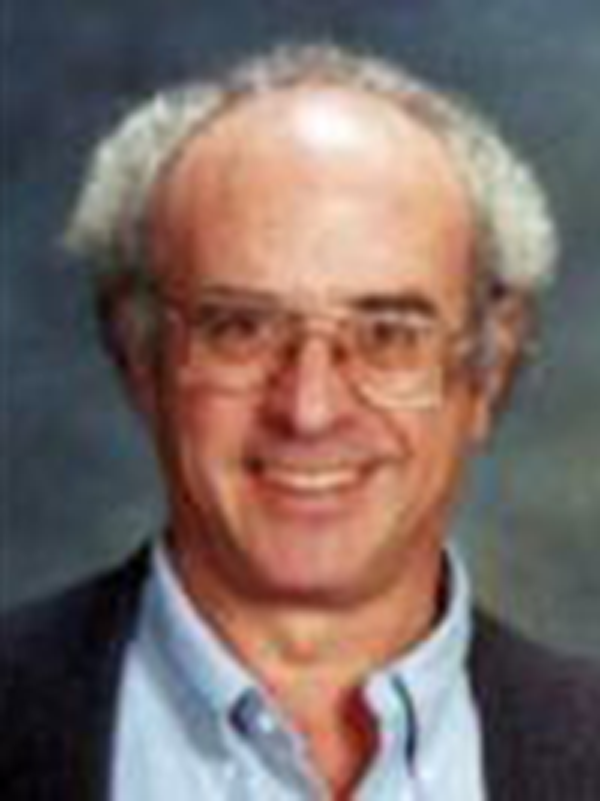
Henry Abarbanel
Henry Abarbanel
Henry received his B.S. in physics from Caltech and his Ph.D. in physics from Princeton University. He has served on the faculties at Princeton, Stanford, Northwestern, the University of Chicago, UC Berkeley, UC Santa Cruz and, since 1982, at UC San Diego. He presently has appointments as professor of physics at UC San Diego and research physicist at the Marine Physical Laboratory, Scripps Institution of Oceanography.
His research interests have ranged from elementary particle physics to the nonlinear dynamics of biological and physical systems. In that regard he was the founding director of UC San Diego’s Institute for Nonlinear Science and served from 1986 through 2007. In 2000–01 he served as a member of the University of California’s Academic Council, the governing body of UC’s faculty senate.
Since 1974, Henry has been a member of JASON, a consulting group to the U.S. Government on technical matters. In 1992 he became a member of the City Council of Del Mar, California, serving as mayor in 1995–96. In that role he has served on numerous regional bodies concerned with energy, wastewater, infrastructure, and quality of life in the San Diego region.
Professional Associations – member of the San Diego Regional Water Quality Control Board, by appointment of Governor Jerry Brown.
In 1995 he co-founded and served as Chairman and CEO of the Systems and Software Consortium, a non-profit association of 150 companies whose first project was the creation of the Pacific Technology Center in Goleta, the largest high tech incubator in southern California at the time.
Professional Associations – Michael currently serves on the Director’s Council of the Kavli Institute for Theoretical Physics at UCSB, and is a life member of the USAF Academy Association of Graduates, the Stanford Alumni Association and Stanford Associates. He is a past member of the Board of Directors of Junior Achievement of Southern California; the Executive Board of Santa Barbara Partners in Education; and the Stanford Business School Alumni Association Board. He has served on advisory boards for the NASA Ames Incubator and Los Alamos National Laboratory.
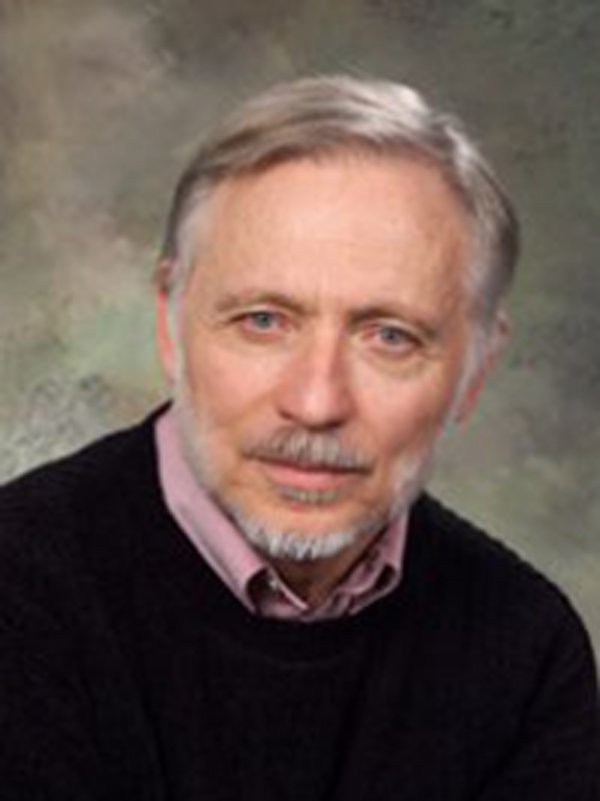
Elbert Branscomb
Elbert Branscomb
Department of Physics, University of Illinois Biocomplexity research theme member, Institute for Genomic Biology
Elbert received his B.A. in physics from Reed College (1957) and his Ph.D. in Theoretical Physics from Syracuse University (1964). In 1964 he joined Lawrence Livermore National Laboratory (LLNL) as a theoretical physicist but transitioned to biology shortly thereafter, becoming a senior biomedical scientist in 1969. His primary research focus was on inaccuracy in DNA replication and transcription: its biological consequences, the mechanisms by which it is controlled, and how heritable mutation rates might be measured in human populations. In 1986, when the Department of Energy (DOE) initiated a program to map and sequence the human genome, he assumed responsibility for the computational and mathematical component of LLNL’s human genome program. In 1996 when the DOE founded the Joint Genome Institute, Branscomb was named its initial director, serving in that capacity until the completion of the first publicly funded ‘draft’ sequence of the human genome in 2000. From 2000 to 2004, he held the position of Chief Scientist, US DOE Genome Program, in which capacity he assisted the DOE’s Office of Biological and Environmental Research in the furtherance of its genomics-related research programs. In recognition of his scientific contribution to LLNL and the DOE he was awarded the Edward Teller Fellowship in 2001. In 2004 he was named an LLNL Associate Director with responsibility for leading its Biomedical Directorate, a position he held until shortly before retiring from LLNL in 2007. Since moving with his wife Lisa Stubbs to the University of Illinois in 2008, he has held the position of Affiliate Faculty, jointly attached to the Department of Physics and the Biocomplexity Theme at the IGB.
Professional Associations – Elbert serves on the Scientific Advisory Board for UCLA’s Structural Biology Program; the Scientific Advisory Board for the Joint Center for Structural Genomics, La Jolla, and has been an invited reviewer for more than 20 special National Institute of Health (NIH) review panels. He is also a member of the Editorial Board for the Journal of Computational Biology and was named an Edward Teller Fellow by LLNL in 2001. He is also the author of more than 39 publications.
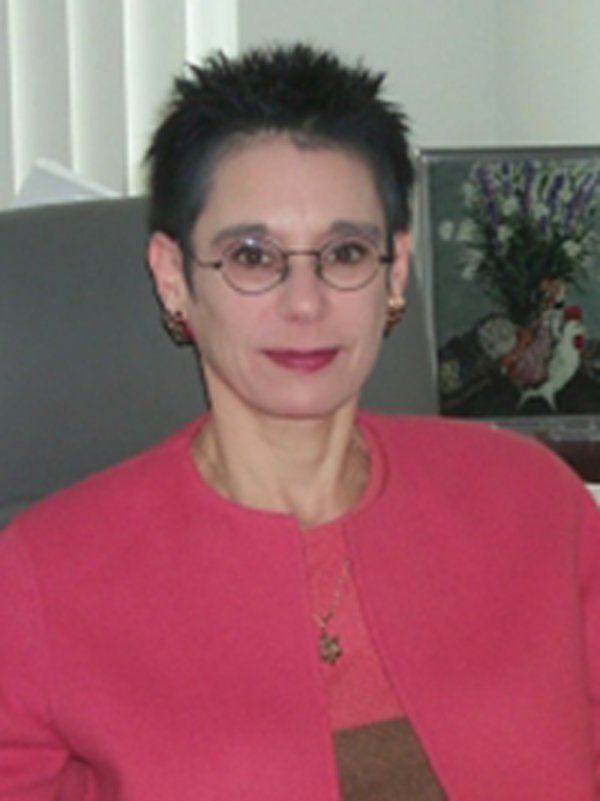
Michelle Broido
Michelle Broido
Associate Vice Chancellor for Biomedical Research, Office of Research (Retired), Health Sciences, University of Pittsburgh
Michelle has served in a number of positions that, cumulatively, have given her experience in conducting independent, multi-disciplinary research, oversight of training and research programs, prioritizing federal research expenditures, evaluation of competitive research and training programs, development of new award programs, and development of new programs focused on helping investigators achieve independence and research success. First, as a faculty member, she conducted independent research in structural biology. As a program officer at NIGMS, she had responsibility for a very large portfolio of research grants in structural biology and molecular biophysics, responsibility for the Molecular Biophysics Training Program (T32), and responsibility for a fellowship program (F31). As a division director in the Office of Biological and Environmental Research at the Department of Energy (DOE), she had responsibility for a $180 million budget that supported a broad spectrum of research awards in environmental sciences that epitomized translational research and that required the creation of new, innovative programs in response to emerging scientific needs. As the Associate Vice Chancellor for Biomedical Research at the University of Pittsburgh, she has developed and managed pilot programs, developed/expanded new core facilities, been involved in the creation of new research programs, and had broad responsibility for developing infrastructure that supports biomedical research at the University. At the University, she also served in a leadership position for our Clinical and Translational Science Award from 2006 – 2015.
Although she relished being an active investigator, she found that she took greater enjoyment in helping other scientists be successful than she did in her own individual scientific accomplishments. This is why she left a tenured position to enter government service. She was first exposed to translational research as division director at DOE, where the fundamental science studies that she supported all had clear and explicit implications for environmental restoration (including climate change). She also developed programs to bridge the valley of death between fundamental and applied research, equivalent to the valley of death between laboratory-based and clinical research. Being able to apply the lessons learned during that stage of her career to the biomedical research enterprise at the University of Pittsburgh was rewarding.
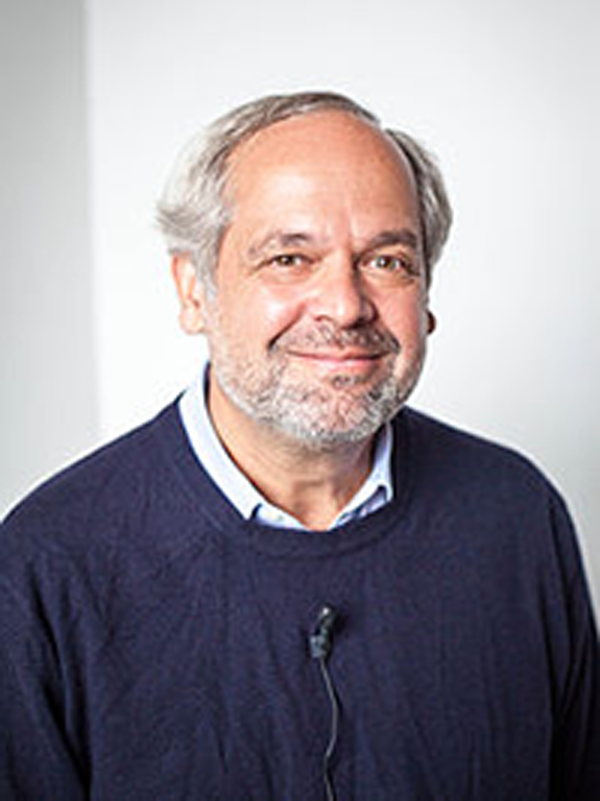
Juan Enriquez
Juan Enriquez
Managing Director, Excel Venture Management, bestselling author, Co-Founder, Synthetic Genomics and multiple start ups
An active investor in early stage private companies in the life sciences and big data sectors, Juan is one of the world’s leading authorities on the uses and benefits of genomic code. He is the co-author of Evolving Ourselves: How Unnatural Selection and Nonrandom Mutation are Shaping Life on Earth (Penguin; March 2015) which describes a world where humans increasingly shape their environment, themselves, and other species. He is also the author of the global bestseller As The Future Catches You and of The Untied States of America, and co-author of Homo Evolutis. Juan writes, speaks, and teaches about the profound changes that genomics and other life sciences will cause in business, technology, politics and society. He is one of the TED all-stars. He and Bill Gates were the first outside guest curators for TED.
Professional Associations – founding director of the Harvard Business School Life Sciences Project and is on the Harvard Medical School Advisory Council. He has published papers and articles in a wide variety of forums including The Harvard Business Review, Foreign Policy, Science, Nature, and the New York Times.
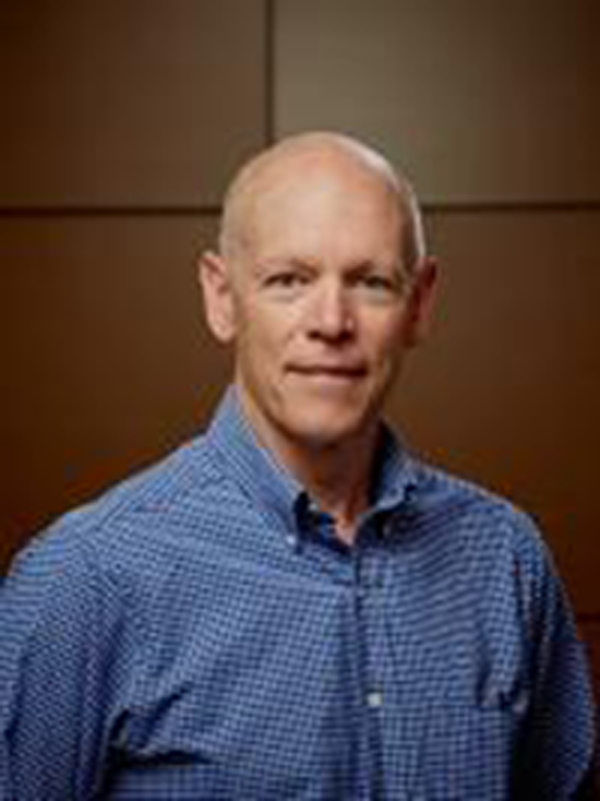
Jack Fellows
Jack Fellows
Director Emeritus, Climate Change Science Institute, Oak Ridge National Laboratory
Jack began his career as a research faculty member at the University of Maryland, where he conducted research in the use of satellite data in hydrologic models. In 1984, he was selected as the American Geophysical Union’s congressional science fellow and spent a year working on science policy and legislation in the U.S. Congress. After his fellowship, he joined the White House’s Office of Management and Budget, where he oversaw the budget and policy issues related to NASA, NSF, Federal-wide R&D programs, and helped initiate the U.S. Global Change Research Program. From 1997 to 2013, he was the Vice President of the University Corporation for Atmospheric Research and oversaw this 110 universities research consortium focused on weather and climate policy and research. After UCAR, he was the Director of the Climate Change Science Institute (CCSI) at Oak Ridge National Laboratory from 2013 to 2017. He is currently the CCSI Director Emeritus, a Joint Faculty Professor at the University of Tennessee, and working on independent research projects.
Professional Associations – In 2014 Jack received a Lifetime Achievement Award from The National Council for Science and the Environment for his part in co-founding the U.S. Global Change Research Program, or USGCRP.
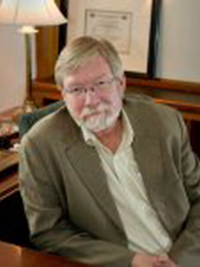
Gerry Stokes
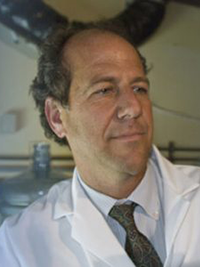
Greg Mitchell
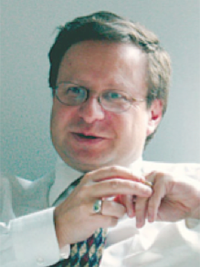
Steven Koonin
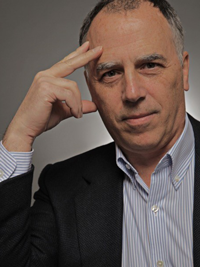
Edward Schulak
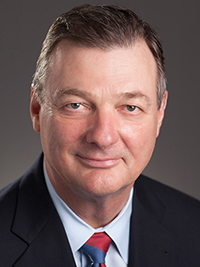
Jeffrey Wadsworth
David Galas
Principal Scientist, Pacific Northwest Research Institute
David’s experience in government service as Director of Health and Environmental Research in the Department of Energy, Office of Science, from 1990 to 1993 involved running all the programs of research in biological and environmental sciences. This research was carried out in the National laboratories and in Universities across the country, and covered a wide range of areas in basic and applied science and technology, including most notably the component of the Human Genome Project of the Department of Energy, a project that he participated in initiating.
In the private sector, he was one of the founders in 1993 of Darwin Molecular Corporation, a biotechnology company focused on an integrated technological approach to drug discovery that began with gene discovery and used combinatorial chemistry methods to developed drug leads against newly defined targets. He was the chief scientific officer from the company’s inception and have also held other positions as needed, including CEO, and most recently President of the US component of the larger merged company when it was acquired by a public British company. The company merged in January 1997 with a UK company, Chiroscience plc, which was focused on chemistry, and pre-clinical and clinical drug development. He remained the President and Chief Scientific Officer of the US part of the combined company until 1998 when he assumed the role at KGI. With some new technology developed in Darwin Molecular at the foundation, he formed a new subsidiary, Rapigene, in March 1998 to develop and commercialize this genotyping and gene expression measurement technology.
In September 1998 he relinquished all management responsibilities for Chiroscience and assumed a part time advisory role in order to assume the post of Chief Academic Officer and to help found a new academic venture, the Keck Graduate Institute of Applied Life Sciences (KGI). KGI was formed to develop an entirely new type of graduate training and research program focused primarily on training professionals in the applied life sciences.
In June 2005 he assumed the position of Vice President and Chief Science Officer for Biology and Life Sciences at Battelle Memorial Institute. He also took an academic position as Professor at the Institute for Systems Biology, a non-profit research institute in Seattle, WA. His responsibilities in the newly created Battelle position were to plan and coordinate Battelle’s various activities in the life sciences – in the national labs managed by Battelle, and in the other commercial and government contract work that Battelle performs. He assumed the position of Senior Vice President of the Institute for Systems Biology in 2008, focused on devising and managing new strategic partnerships with the Institute, like the recent research and collaboration with the country of Luxembourg.
Gerry Stokes
Professor and Chair Department of Technology and Society, State University of New York, Korea
Gerry moved to SUNY Korea after five years as a research professor at Stony Brook University.
Previously, he was with Battelle for 38 years serving as a senior manager at Brookhaven National Laboratory and Pacific NW National Laboratory (PNNL) and President and CEO of Battelle-Japan.
He was the founding director of the Joint Global Change Research Institute.
While at PNNL he managed two major programs, the DOE Atmospheric Radiation Measurement Program and the BPA End Use Load and Conservation Assessment Program.
His current research interests include the smart grid and novel approaches to the mitigation of carbon dioxide emissions and reduction of the global burden of atmospheric greenhouse gases.
Professional Associations – member of Sigma Xi and a Fellow of the American Association for the Advancement of Science. He has served on several National Academy of Sciences panels on science education, including the panel that wrote the National Science Education Standards.
Steve Koonin
Founding Director of the NYU Center for Urban Science & Progress, Brooklyn, NY
In 2008, Steve was the convener of Novim’s first scientific study group looking at Climate Engineering.
He received his B.S. in physics at Caltech and his Ph.D. in theoretical physics at MIT. He immediately joined the Caltech faculty, and served as Chairman of the Faculty from 1989-1991. From 1995 to 2004, he was Caltech’s Provost, with responsibility for the totality of its research and educational activities. Following Caltech, Steve served for 5 years as Chief Scientist for British Petroleum in London and was then appointed DOE Undersecretary for Science by president Obama, serving through 2011.
Steve’s research interests have included global environmental science, nuclear astrophysics and theoretical nuclear, many-body and computational physics. He remains engaged in a program of systematic observations of earthshine reflected from the lunar surface to determine variations in global albedo, an important factor in the climate system.
Early in his career, he was a research fellow at the Niels Bohr Institute and an Alfred P. Sloan Foundation Fellow. He received the Caltech Associated Students Teaching Award, and the Humboldt Senior Scientist Prize. He also received the E.O. Lawrence Award in Physics from the Department of Energy “for his broad impact on nuclear many-body physics, on astrophysics, and on a variety of related fields where sophisticated numerical methods are essential; and in particular, for his breakthrough in nuclear shell model calculations centered on an ingenious method for dealing with the huge matrices of heavy nuclei by using path integral methods combined with the Monte Carlo technique”
Professional Service – Steve is a member of the Council for Foreign Relations and has served on a number of advisory committees for the US National Science Foundation, the Department of Defense, the Department of Energy, and various national laboratories. He is a fellow of the American Physical Society, the American Association for the Advancement of Science, and the American Academy of Arts and Sciences.
Greg Mitchell
Professor Emeritus, Integrative Oceanography Division, Scripps Institution of Oceanography, San Diego CA
Greg has extensive experience in ocean optics, remote sensing of phytoplankton and ocean production, and modelling phytoplankton growth. Starting with his first cruise in 1979 in support of the CZCS calibration / validation / algorithm cruise to the Gulf of California, Mitchell has spent more than 5 years at sea studying ocean photosynthesis and optics and uses the knowledge gained at sea to develop algorithms and models for ocean color remote sensing. Global data collected by the Scripps Photobiology Group (SPG) under the direction of Greg are among the most globally distributed and complete data sets in NASA’s SeaBASS data archives used for ocean color algorithms and validation. In 2013 he served on NASA’s PACE Science Definition Team, from 2003-2008 he was lead PI for the NSF-funded Drake Passage Ecosystem Transition Study that resulted in more than 40 peer reviewed publications. He was funded by NASA OBB for global studies including SIMBIOS funds to interface with NOAA CalCOFI (California Current) and AMLR (Drake Passage / Antarctic Peninsula) and he was a PI for NASA ICESCAPE. Greg has more than 115 peer-reviewed articles, including more than 150 co-authors with approximately 25% of the articles having students or postdocs as the lead author and at least 10 led by international students or postdocs. In the past 10 years Greg has applied his expertise in algae physiology, ecology and modeling to the area of algae biotechnology for biofuels, animal feed and mitigation of CO2 and nutrient wastes, pioneered the merger of satellite ocean color data, atmospheric oxygen, and global biogeochemical models to understand the ocean biological pump, and also pioneered the application of machine learning to coral reef ecology with the Computer Vision Coral Ecology project funded by NSF and NOAA. The latter project resulted in CoralNet, an on-line portal for machine learning applied to coral reefs that currently hosts nearly 500,000 images from more than 20 international collaborators.
Professional Associations – member of the American Society of Limnology and Oceanography, American Association for the Advancement of Science, The Oceanography Society, American Geophysical Union, Sigma Xi. Greg was a 1998 Finalist for Provasoli Award, Phycological Society of America and was given the Award of Excellence 2nd Place for paper presented at the XVI International Seaweed Symposium in 2001.
Edward Schulak
Philanthropist, architect, entrepreneur, inventor, international business leader as well as the founder, financier and director of nine life science companies
Mr. Schulak graduated from the Rhode Island School of Design. He was President of International Airport Centers and was Chairman of Metro International Trade Services. Recently, Mr. Schulak has focused on life sciences, specifically developing groundbreaking technologies for genetic sequencing, forensics, bioinformatics and drug development. He currently serves on the Advisory Board of the University of Michigan Health System and the Harvard Dean’s Discovery Council.
Jeffrey Wadsworth
Former President and CEO of Battelle Memorial Institute
Jeffrey Wadsworth is the former President and CEO of Battelle Memorial Institute, headquartered in Columbus, Ohio. Battelle is the world’s largest nonprofit R&D organization executing about $5.5B of work annually. Jeff worked at Stanford, Lockheed, and Lawrence Livermore National Laboratory prior to joining Battelle in 2002 as part of the White House Transition Planning Office for the Department of Homeland Security (DHS). He was the director of Oak Ridge National Laboratory and subsequently headed Battelle’s Global Laboratory Operations, directing laboratories for the U.S. Department of Energy, DHS, and others. He became Battelle’s 8th President and CEO in 2009. Jeff earned bachelors and doctoral degrees at Sheffield University in England and has published nearly 300 scientific papers, one book, and holds four U.S. patents. He has six honorary doctorates, fellowships in three technical societies, and is a member of the National Academy of Engineering and the Chinese Academy of Engineering. He is the recipient of numerous awards and recognitions. He served on the Board of Trustees at The Ohio State University and was Chairman for two years. Jeff helped to lead national efforts to enhance STEM (science, technology, engineering and math) education through the launching of STEM schools and by developing state and national networks of STEM schools. He currently supports various scholarships to encourage students in STEM fields. He is a member of the Novim Science Advisory Board.
David Galas
Principal Scientist, Pacific Northwest Research Institute
David’s experience in government service as Director of Health and Environmental Research in the Department of Energy, Office of Science, from 1990 to 1993 involved running all the programs of research in biological and environmental sciences. This research was carried out in the National laboratories and in Universities across the country, and covered a wide range of areas in basic and applied science and technology, including most notably the component of the Human Genome Project of the Department of Energy, a project that he participated in initiating.
In the private sector, he was one of the founders in 1993 of Darwin Molecular Corporation, a biotechnology company focused on an integrated technological approach to drug discovery that began with gene discovery and used combinatorial chemistry methods to developed drug leads against newly defined targets. He was the chief scientific officer from the company’s inception and have also held other positions as needed, including CEO, and most recently President of the US component of the larger merged company when it was acquired by a public British company. The company merged in January 1997 with a UK company, Chiroscience plc, which was focused on chemistry, and pre-clinical and clinical drug development. He remained the President and Chief Scientific Officer of the US part of the combined company until 1998 when he assumed the role at KGI. With some new technology developed in Darwin Molecular at the foundation, he formed a new subsidiary, Rapigene, in March 1998 to develop and commercialize this genotyping and gene expression measurement technology.
In September 1998 he relinquished all management responsibilities for Chiroscience and assumed a part time advisory role in order to assume the post of Chief Academic Officer and to help found a new academic venture, the Keck Graduate Institute of Applied Life Sciences (KGI). KGI was formed to develop an entirely new type of graduate training and research program focused primarily on training professionals in the applied life sciences.
In June 2005 he assumed the position of Vice President and Chief Science Officer for Biology and Life Sciences at Battelle Memorial Institute. He also took an academic position as Professor at the Institute for Systems Biology, a non-profit research institute in Seattle, WA. His responsibilities in the newly created Battelle position were to plan and coordinate Battelle’s various activities in the life sciences – in the national labs managed by Battelle, and in the other commercial and government contract work that Battelle performs. He assumed the position of Senior Vice President of the Institute for Systems Biology in 2008, focused on devising and managing new strategic partnerships with the Institute, like the recent research and collaboration with the country of Luxembourg.
Professional Associations – recipient of several awards including the Smithsonian Institution-Computer World Pioneer award in 1999. He has served on many federal, university and corporate boards, including several biotechnology companies he has co-founded, and on various advisory and National Research Council committees, including the Board on Life Science and the National Cancer Policy Board. He chairs the Board of Directors of the Fannie and John Hertz Foundation and is a lifetime National Associate of the National Academy of Sciences.
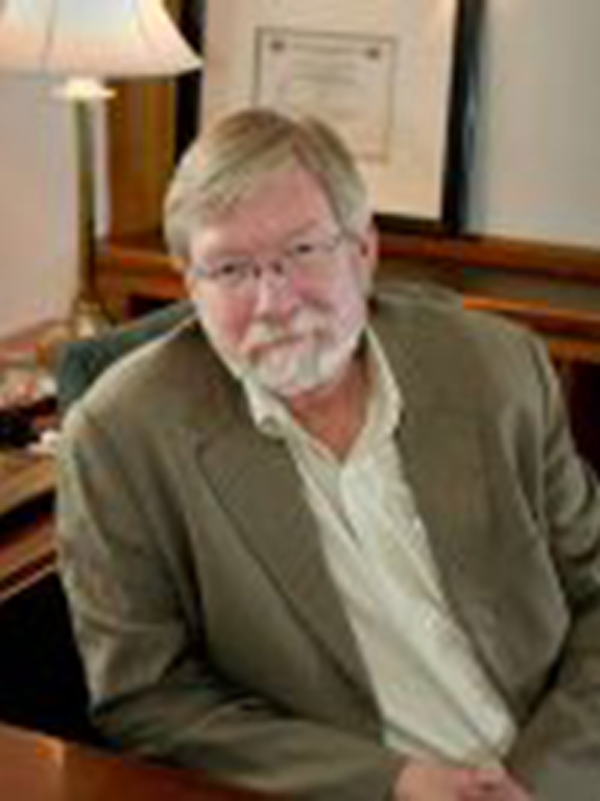
Gerry Stokes
Gerry Stokes
Professor and Chair Department of Technology and Society, State University of New York, Korea
Gerry moved to SUNY Korea after five years as a research professor at Stony Brook University.
Previously, he was with Battelle for 38 years serving as a senior manager at Brookhaven National Laboratory and Pacific NW National Laboratory (PNNL) and President and CEO of Battelle-Japan.
He was the founding director of the Joint Global Change Research Institute.
While at PNNL he managed two major programs, the DOE Atmospheric Radiation Measurement Program and the BPA End Use Load and Conservation Assessment Program.
His current research interests include the smart grid and novel approaches to the mitigation of carbon dioxide emissions and reduction of the global burden of atmospheric greenhouse gases.
Professional Associations – member of Sigma Xi and a Fellow of the American Association for the Advancement of Science. He has served on several National Academy of Sciences panels on science education, including the panel that wrote the National Science Education Standards.
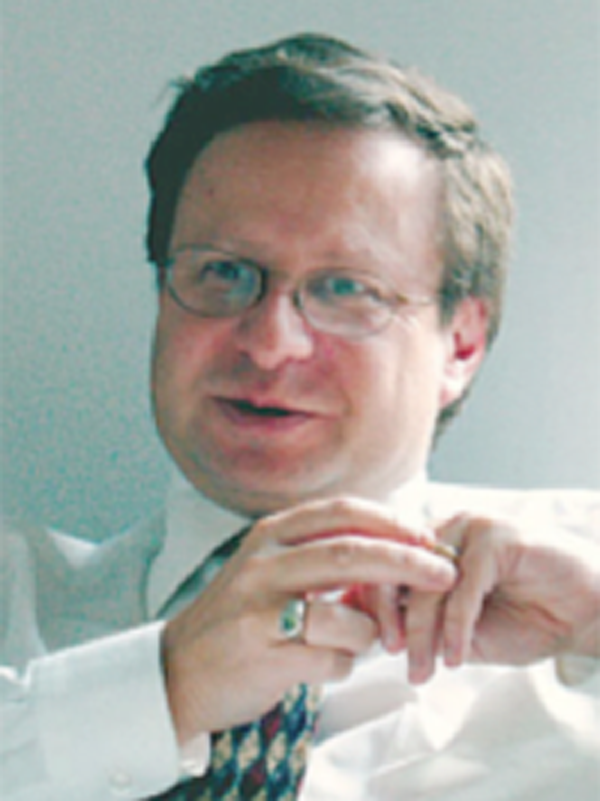
Steven Koonin
Steven Koonin
Founding Director of the NYU Center for Urban Science & Progress, Brooklyn, NY
In 2008, Steve was the convener of Novim’s first scientific study group looking at Climate Engineering.
He received his B.S. in physics at Caltech and his Ph.D. in theoretical physics at MIT. He immediately joined the Caltech faculty, and served as Chairman of the Faculty from 1989-1991. From 1995 to 2004, he was Caltech’s Provost, with responsibility for the totality of its research and educational activities. Following Caltech, Steve served for 5 years as Chief Scientist for British Petroleum in London and was then appointed DOE Undersecretary for Science by president Obama, serving through 2011.
Steve’s research interests have included global environmental science, nuclear astrophysics and theoretical nuclear, many-body and computational physics. He remains engaged in a program of systematic observations of earthshine reflected from the lunar surface to determine variations in global albedo, an important factor in the climate system.
Early in his career, he was a research fellow at the Niels Bohr Institute and an Alfred P. Sloan Foundation Fellow. He received the Caltech Associated Students Teaching Award, and the Humboldt Senior Scientist Prize. He also received the E.O. Lawrence Award in Physics from the Department of Energy “for his broad impact on nuclear many-body physics, on astrophysics, and on a variety of related fields where sophisticated numerical methods are essential; and in particular, for his breakthrough in nuclear shell model calculations centered on an ingenious method for dealing with the huge matrices of heavy nuclei by using path integral methods combined with the Monte Carlo technique”
Professional Service – Steve is a member of the Council for Foreign Relations and has served on a number of advisory committees for the US National Science Foundation, the Department of Defense, the Department of Energy, and various national laboratories. He is a fellow of the American Physical Society, the American Association for the Advancement of Science, and the American Academy of Arts and Sciences.
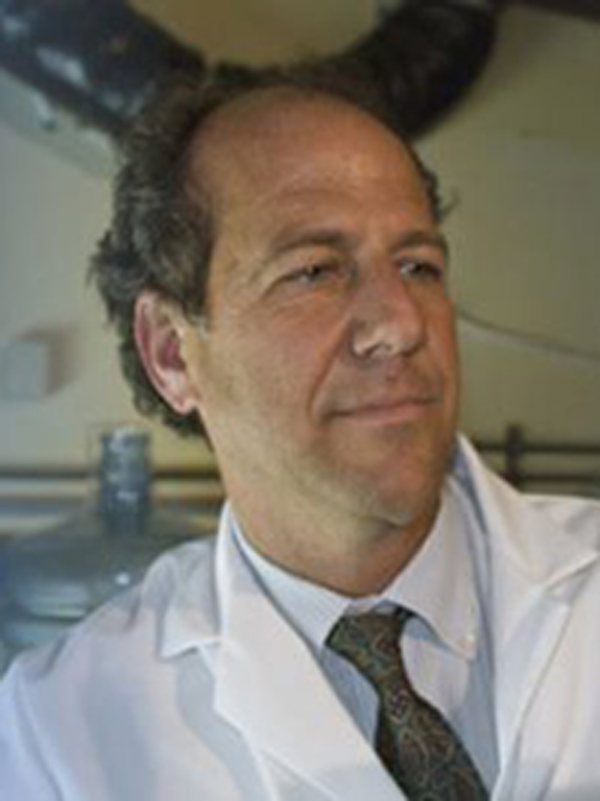
Greg Mitchell
Greg Mitchell
Professor Emeritus, Integrative Oceanography Division, Scripps Institution of Oceanography, San Diego CA
Greg has extensive experience in ocean optics, remote sensing of phytoplankton and ocean production, and modelling phytoplankton growth. Starting with his first cruise in 1979 in support of the CZCS calibration / validation / algorithm cruise to the Gulf of California, Mitchell has spent more than 5 years at sea studying ocean photosynthesis and optics and uses the knowledge gained at sea to develop algorithms and models for ocean color remote sensing. Global data collected by the Scripps Photobiology Group (SPG) under the direction of Greg are among the most globally distributed and complete data sets in NASA’s SeaBASS data archives used for ocean color algorithms and validation. In 2013 he served on NASA’s PACE Science Definition Team, from 2003-2008 he was lead PI for the NSF-funded Drake Passage Ecosystem Transition Study that resulted in more than 40 peer reviewed publications. He was funded by NASA OBB for global studies including SIMBIOS funds to interface with NOAA CalCOFI (California Current) and AMLR (Drake Passage / Antarctic Peninsula) and he was a PI for NASA ICESCAPE. Greg has more than 115 peer-reviewed articles, including more than 150 co-authors with approximately 25% of the articles having students or postdocs as the lead author and at least 10 led by international students or postdocs. In the past 10 years Greg has applied his expertise in algae physiology, ecology and modeling to the area of algae biotechnology for biofuels, animal feed and mitigation of CO2 and nutrient wastes, pioneered the merger of satellite ocean color data, atmospheric oxygen, and global biogeochemical models to understand the ocean biological pump, and also pioneered the application of machine learning to coral reef ecology with the Computer Vision Coral Ecology project funded by NSF and NOAA. The latter project resulted in CoralNet, an on-line portal for machine learning applied to coral reefs that currently hosts nearly 500,000 images from more than 20 international collaborators.
Professional Associations – member of the American Society of Limnology and Oceanography, American Association for the Advancement of Science, The Oceanography Society, American Geophysical Union, Sigma Xi. Greg was a 1998 Finalist for Provasoli Award, Phycological Society of America and was given the Award of Excellence 2nd Place for paper presented at the XVI International Seaweed Symposium in 2001.
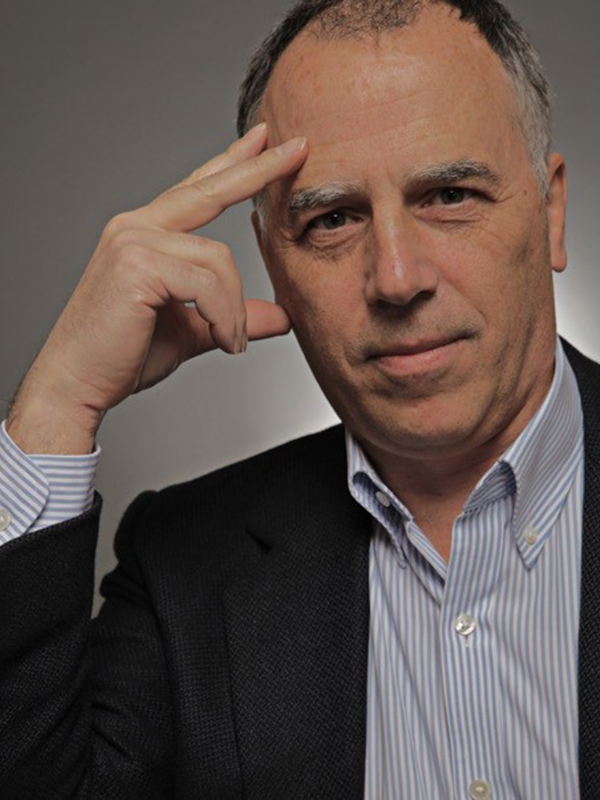
Edward Schulak
Edward Schulak
Philanthropist, architect, entrepreneur, inventor, international business leader as well as the founder, financier and director of nine life science companies
Mr. Schulak graduated from the Rhode Island School of Design. He was President of International Airport Centers and was Chairman of Metro International Trade Services. Recently, Mr. Schulak has focused on life sciences, specifically developing groundbreaking technologies for genetic sequencing, forensics, bioinformatics and drug development. He currently serves on the Advisory Board of the University of Michigan Health System and the Harvard Dean’s Discovery Council.
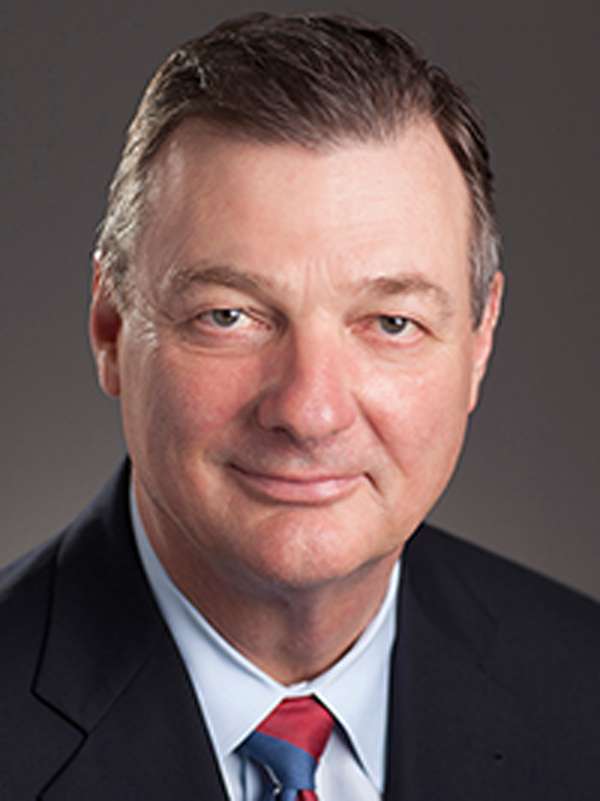
Jeffrey Wadsworth
Jeffrey Wadsworth
Former President and CEO of Battelle Memorial Institute
Jeffrey Wadsworth is the former President and CEO of Battelle Memorial Institute, headquartered in Columbus, Ohio. Battelle is the world’s largest nonprofit R&D organization executing about $5.5B of work annually. Jeff worked at Stanford, Lockheed, and Lawrence Livermore National Laboratory prior to joining Battelle in 2002 as part of the White House Transition Planning Office for the Department of Homeland Security (DHS). He was the director of Oak Ridge National Laboratory and subsequently headed Battelle’s Global Laboratory Operations, directing laboratories for the U.S. Department of Energy, DHS, and others. He became Battelle’s 8th President and CEO in 2009. Jeff earned bachelors and doctoral degrees at Sheffield University in England and has published nearly 300 scientific papers, one book, and holds four U.S. patents. He has six honorary doctorates, fellowships in three technical societies, and is a member of the National Academy of Engineering and the Chinese Academy of Engineering. He is the recipient of numerous awards and recognitions. He served on the Board of Trustees at The Ohio State University and was Chairman for two years. Jeff helped to lead national efforts to enhance STEM (science, technology, engineering and math) education through the launching of STEM schools and by developing state and national networks of STEM schools. He currently supports various scholarships to encourage students in STEM fields. He is a member of the Novim Science Advisory Board.
